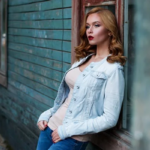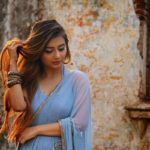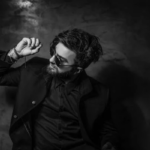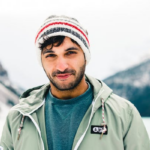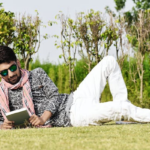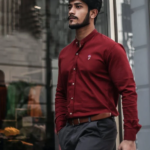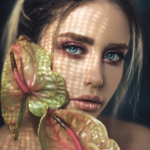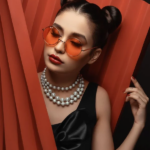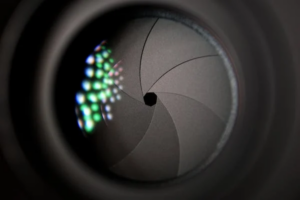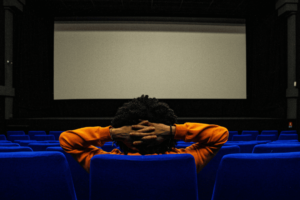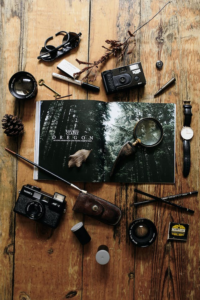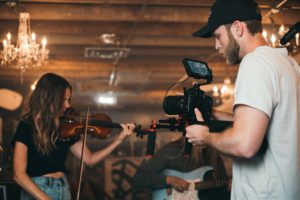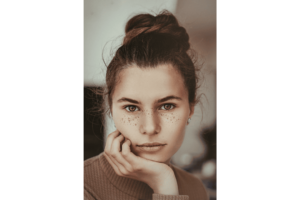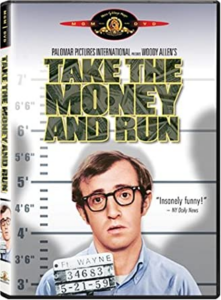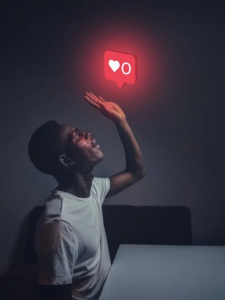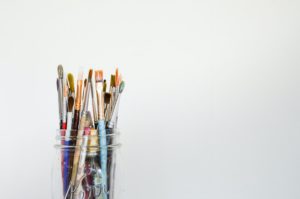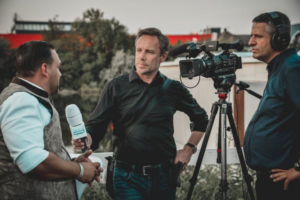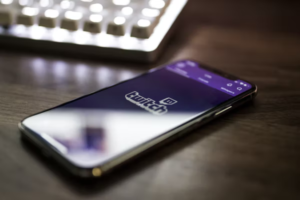A lot of people are shy about having their pictures taken. Most people aren’t nervous about the camera itself, but they do fear the outcomes. They consider themselves as not very photogenic. But the fact is that even the most attractive person can end up with less-than-flattering shots.
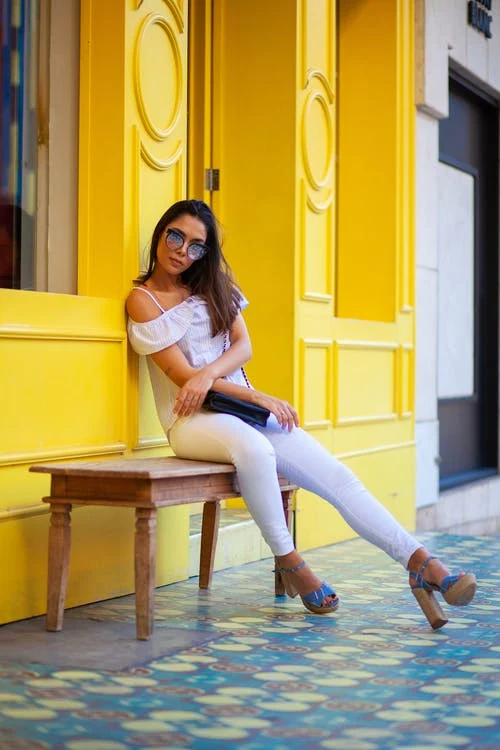
For many new photographers, posing people can be one of the most challenging tasks for creative photography.
With some people, you can get beautiful shots by just having them move naturally, but most often, your subjects might need a bit of help from you. Of course, they’ll be looking to you for assistance, mainly if they are not used to being in front of a camera or not being a model. Usually, people do not know how to pose for photos without guidance.
Before the shoot, there are a few things you need to know. They are:
Kind of Shoot
The posing requirements for a family shoot are very different from a fashion shoot. So firstly, determine which type of shoot you’re heading to.

Look out for Samples
You can look out for samples on the internet or in a magazine where you’ll find some models posing in various styles. Take pictures of them and have them handy on your mobile with you, as it’d be tough to remember all those under pressure.
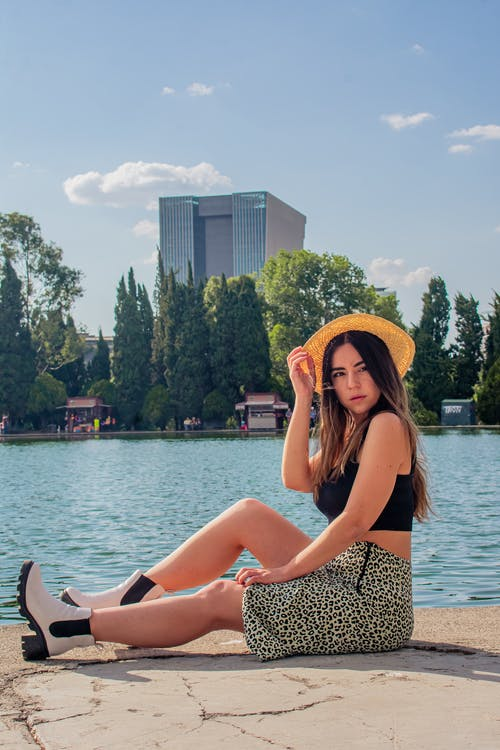
Match the Pose to your Model
The critical point is to match the pose you desire from your model. You’ll see some beautiful poses in fashion magazines or websites. But many of them need an expert model to pull them off. Your model may not do those perfectly as you want. So, tailor the pose to your model.

Download Posing Apps
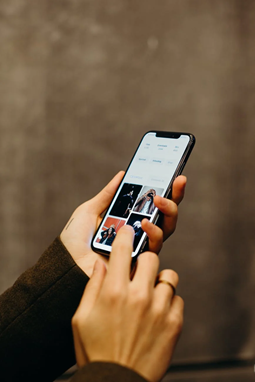
There are several posing apps available on the internet that help you with different posing styles. For our readers, we are listing out the best posing apps that are available across the internet:
- Posing App
- Pocket Poser
- Pinterest Android / Pinterest IOS
- Easy Pose Android / Easy Pose IOS
- Posing Ideas IOS
It is essential to have a few go-to poses ready, as well as a basic idea of what poses look good and what look downright unflattering.
Tips on How to Pose During a Photo-Shoot
Whether you’re just entering photography or already have a few poses under your belt, this article will help you on how to pose people in front of the camera.
1. Build Rapport with Your Model
Building rapport with your model is essential. If your model likes you and understands what you are trying to achieve, they will work harder.
Have a chat with your model about what they like; this will help deliver more life in their eyes and get more real expressions, including natural smiles. And they’ll be more comfortable.
But if your model is shy or tense, you will struggle to get natural-looking portraits. In that situation, take the pressure off the model by bringing it back on yourself. Assure them that if the photos do not come out well, it’s your fault, not theirs. This will help to build their confidence next time.

2. Allow Your Model Some Time to Get Comfortable
It’s as simple as asking them what can help them feel suitable for this shoot rather than diving straight into directing them on how to pose for photos.

3. Decide Which Type of Photo You Want to Shoot
You won’t direct your models to pose the same for a professional headshot as you would a family portrait or something more glamorous. Figure out the type of photo you want to create before moving forward.
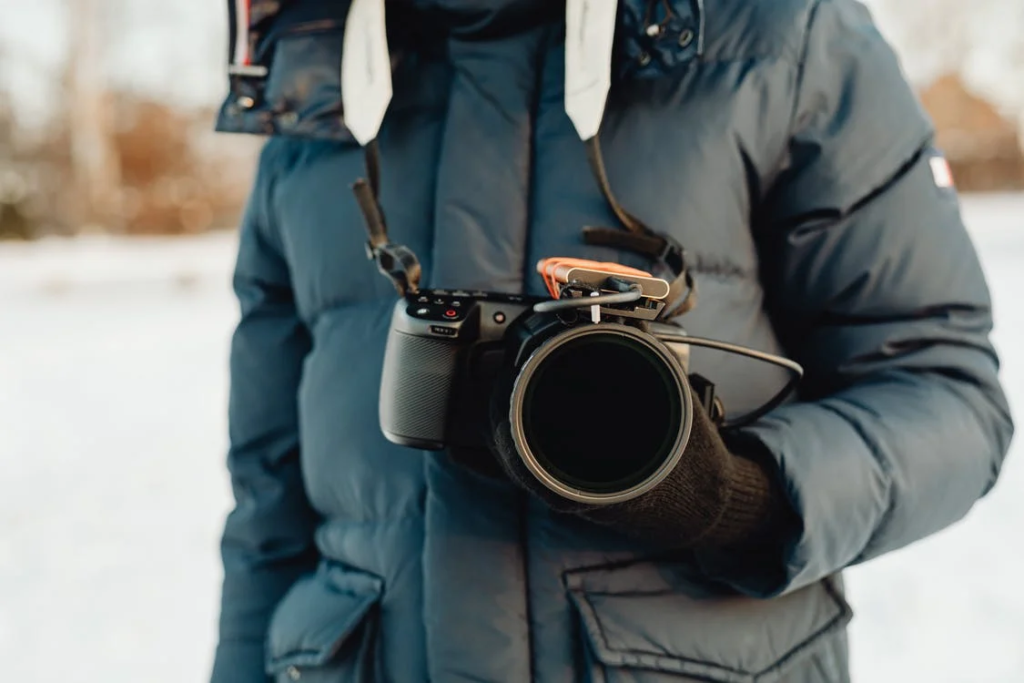
4. Natural Expression is the Key
As you interact with your model, you’ll observe natural expressions and poses that you can capture. Don’t hesitate to say, “Do that again” or “Hold that pose!”
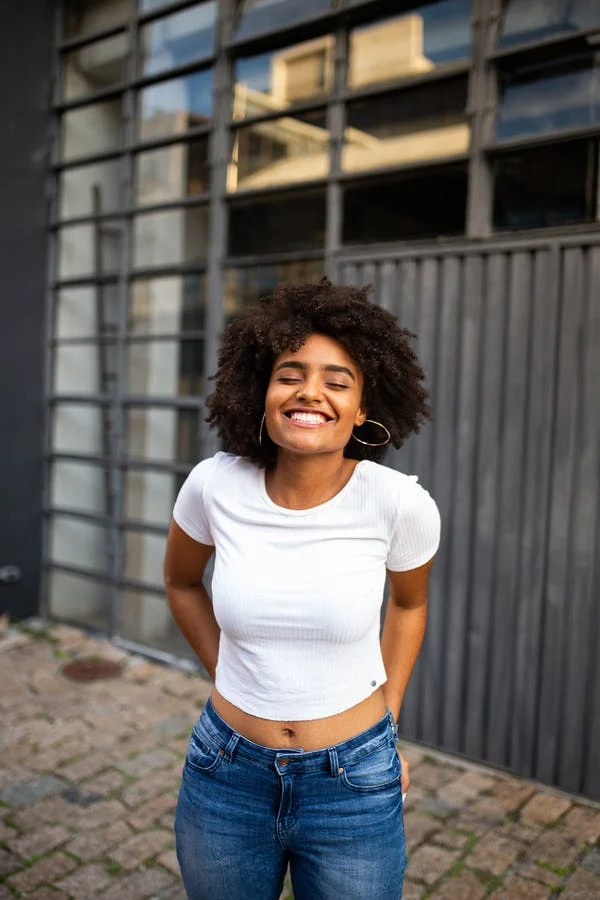
5. Adapt Poses
Treat it as a starting point when you suggest a pose to your models. For example, primarily, you may suggest a pose used in a magazine or from one of the Posing Apps. Then adapt it to suit the model. That means, if your model looks unnatural in a particular posture, then change it! Adjust each pose to suit your model’s physique and clothes.

6. Simplify
Keep things as simple as possible. This applies to the composition, clothes, and jewelry your model is wearing.
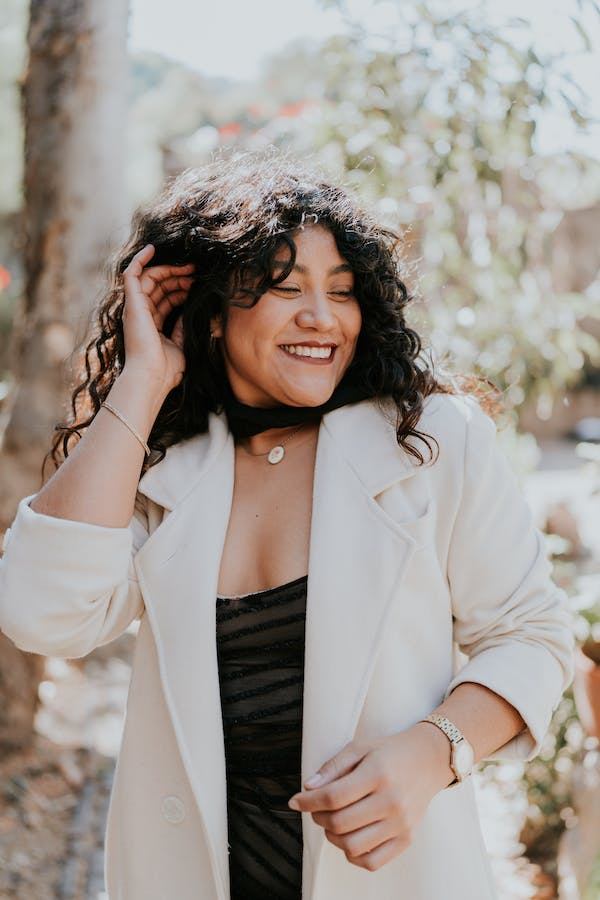
Ask your model to remove some jewelry if they wear too much to improve the composition. If you’re struggling to find an excellent full-length pose, move closer and shoot from the waist up, or take a head-and-shoulders portrait shot. The background will go out of focus, and there will be less of the model in the photo.
7. Pay Attention to Detail
Pay special attention to your model’s hands, which often look better when turned sideways. Look out for photos where the model’s hands look elegant or are perfectly posed, and ask your model to perform the same.

Check your model’s hair to ensure stray strands aren’t blowing across their face or eyes. Look at their clothes to ensure they aren’t wrinkled or folded strangely.
8. Find Something for Your Model to Lean on
When your model leans on something, it makes it much easier to create a natural-looking pose.

9. Use Props
If the model has a property to hold or otherwise to interact with, it gives them something to do. In addition, if they’re having fun with the properties, you’re more likely to get a great expression.
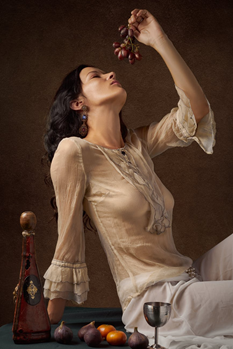
10. Allow Space Between the Arm and the Waist
People often stand with their arms by their sides when they stand naturally. Unfortunately, if there’s no gap between the arm and the waist, the arm will look like a torso extension. This can make the arm “vanish” a bit into the body and/or make the waist look bigger than it is. Depending on your camera angle, it can also have the reverse effect of making the arm look larger.

To avoid this, ask your model to bend their arm. It doesn’t have to be much, just enough to create space between their arm and the body.
11. Angle the Shoulders
Shoulders are the broadest part of the body and can make people look square if you shoot them straight. However, turning the shoulders slightly (or the entire body) will give your subject a slimmer natural look, particularly relevant when posing for females.
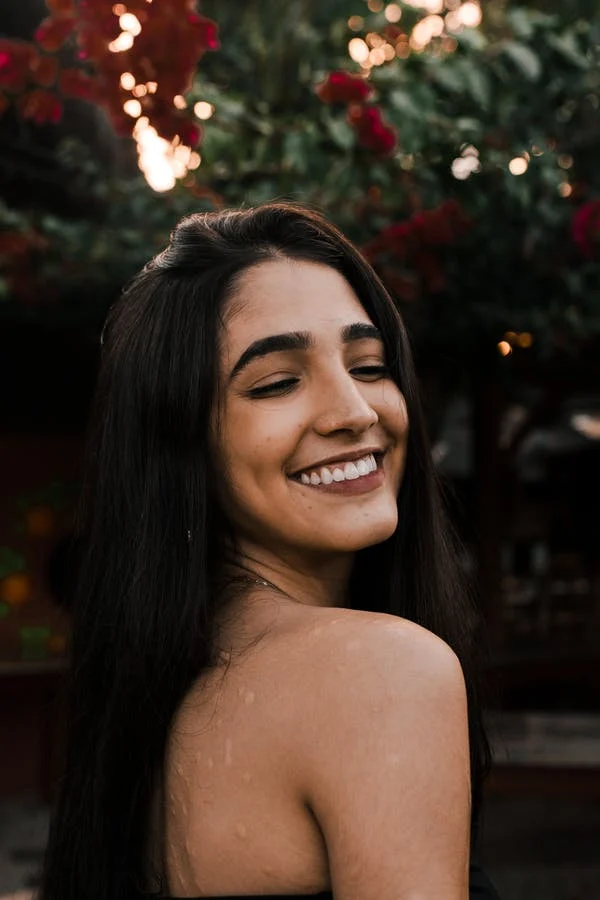
You can only shoot a person straight when you want someone to appear big and powerful or perhaps even a little confrontational, like an athlete or a CEO of a large company. That’s when you can have your model face the camera straight on with their entire body.
12. Push the Chin Forward and Slightly Down
Believe it or not, even thin and trim subjects can end up with a double chin in your photos if you’re not careful. To avoid this, ask your model to push their chin forward. It might seem a bit unnatural, but it will elongate the neck and reduce or hide that extra skin under the chin.

Also, many people raise their chin when facing a camera, making them look a bit defiant and again, showing off their nostrils. If they do this, advise them to lower their chin instead.
13. If it Bends, Bend it
A slight tilt of the head, the tuck of the leg, a bend in the arm can make the difference between an unnatural-looking photo and one in which both the model looks and feels much more natural.

14. Put More Weight on One Leg
Have your model place more weight on one foot than the other to prevent a “blocky” stance. This will form a pleasing s-curve in the waist.

15. Eyes Play a Critical Role
The eyes are the first part of a picture a person sees, making them one of the essential factors in a photo. If you’re capturing a photo with eyes, ensure that you capture the iris as well as the white of your model’s eyes. It’s OK to have your models look away from the camera for a thoughtful or dreamy photo. Still, provide them something specific to look at, so that you can control the eye-line.

16. Avoid the “Pinocchio” Effect
When shooting profiles showing both sides of the face, make sure that the nose doesn’t extend over the face line. That will create a “Pinocchio” effect, making it look longer than it is.


To avoid this, direct your model to turn back towards you a bit. Then, once you can see a bit of space between the nose and the far edge of their face, you’re good to go.
17. Be Mindful of the Hair
If your model has long hair, how it lies will be one of the primary things that get noticed.

There are no rules about how the hair should look because everyone’s unique in their own way.
Luckily there are a few guidelines to follow with regard to hair.
- Do not allow the hair to sit on the shoulders. It looks sloppy and unprofessional.
- Have the part in their hair face the camera to include more of their face in the photo.
- Shooting with hair on both sides of the face will allow one side to look better than the other.
- It’s OK to have hair hanging in front of both shoulders or behind. Also, you can have one part of your hair in the front and the other behind. Ensure it is not resting on the shoulders.
18. Improve Your Photo with Cropping
Cropping is a photography technique that leads the viewer’s eye to where you focus on an image while removing distractions.
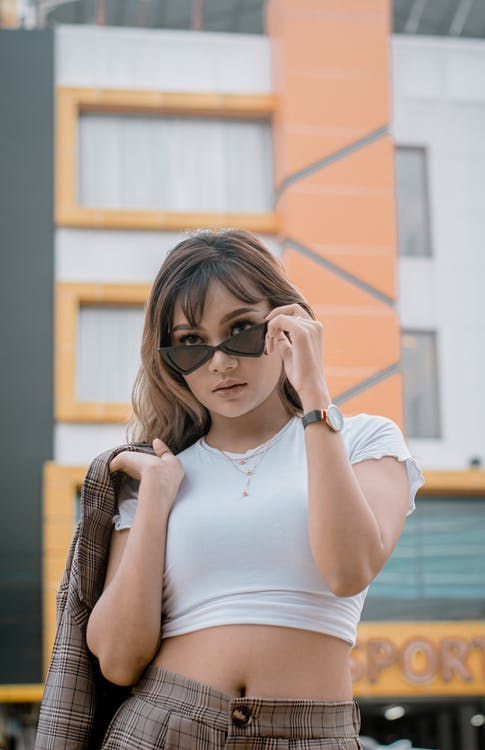
19. Watch Your Camera Angle
Camera angles play a crucial role while photographing. Shooting from below can make your model appear longer. If this makes your model look bigger than you’d prefer, shoot at eye level or slightly below.
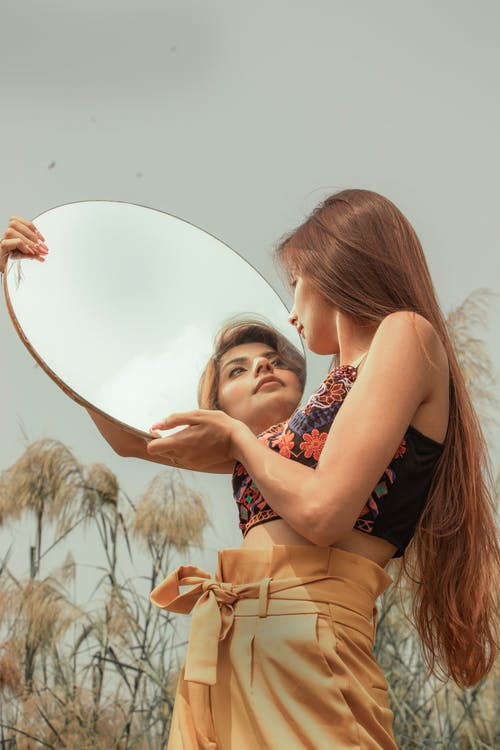
Shooting from just above your model serves best when capturing close-ups. This will help your model look slimmer and, if you’re shooting indoors, will make it easier to fill the eyes with light.
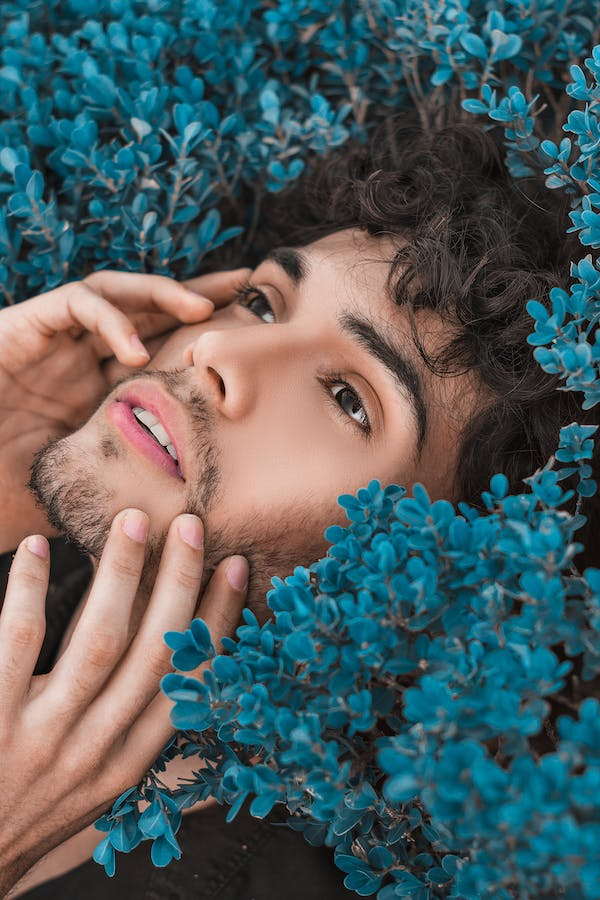
Avoid shooting your model from above when trying to project a feeling of power or confidence. This is particularly the case if you’re posing males who may not appreciate the sense of weakness that comes from this particular angle.
20. Elongate & Exaggerate
Pointed toes are the way to go, and so are exaggerated curves. Making your model point her toes and/or stand on her tiptoes paired with a slight hip tilt is a recipe for success. It gives the model an hourglass shape, elongates the leg, brings out the calf muscles, and accentuates the hips.
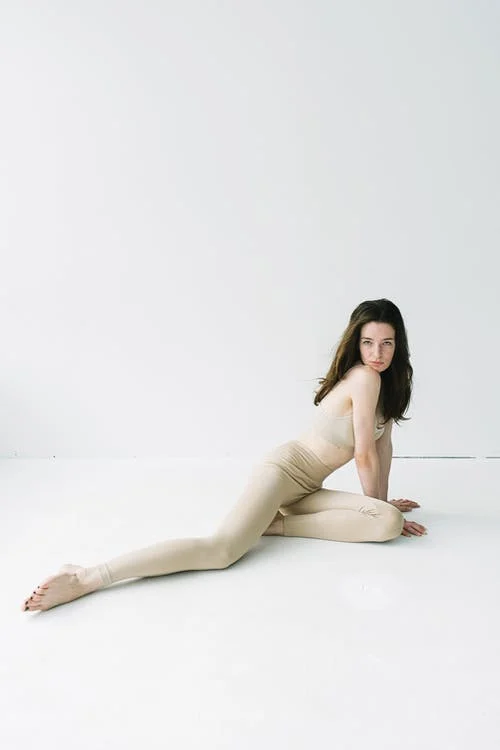
21. Be Confident and Patient
Finally, Posing People with Confidence is the key to getting perfect snaps from your model. Directing models and learning how to pose people is a natural talent; others will need to acquire the skill. Unfortunately, many photographers are learning through experience alongside their models, and it can take years and shoot upon shoot to master.

Give directions to your models that are clear, concise, and spoken confidently. The people you shoot will like this, as it can make them feel at ease rather than like they still need more help and just aren’t getting it right.
People Posing Videos
How To Pose People Who Are NOT MODELS *Top 10 Pose Ideas From a Photographer*
How to Pose People who are NOT Models
HOW TO POSE People Who Are Not Models
Posing + Photographing People Who Aren’t Models
HOW TO POSE – 7 Tips to INSTANTLY Make Anyone LOOK GOOD ON CAMERA
POSING FOR MEN WHO AREN’T MODELS…but you still wanna lewk cute (PART 2)
Final Words
Posing people in a way to make them look their best isn’t all about remembering a bunch of poses. Instead, the best images will come from the rapport and connection you gain with your model.
Gallery
